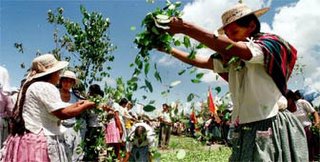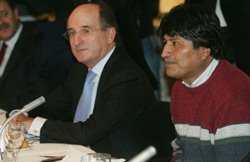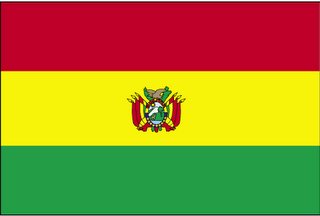Visible reforms improves Morales' mandate
His government came to power on a platform that blasted
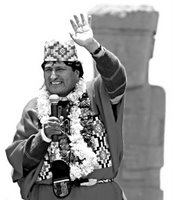 the “neo-liberal” model of the West, vowed to end corruption, called for the nationalization of Bolivia’s natural resources and offered greater representation to indigenous people. And so far it seems to be working for a man serenaded in the streets of Bolivia with the cries of "EVO".
the “neo-liberal” model of the West, vowed to end corruption, called for the nationalization of Bolivia’s natural resources and offered greater representation to indigenous people. And so far it seems to be working for a man serenaded in the streets of Bolivia with the cries of "EVO".Initially Morales made some symbolic reforms that reflected a commitment to serve the interests of the country.
Morales cut his salary by half and also reduced the salaries of the vice-president and his cabinet members. Savings will be used for health and education programs. According to some reports those savings could be as high as $27 million. Other economic and political gains may come from fighting government and corporate corruption.
Establishing Greater Accountability
The new president eliminated three government sectors - taxes,
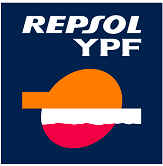 customs and roads - that were recognized as corrupt and ineffective. And Morales' fight against corruption has cast a large spotlight on the Spanish-Argentinian oil company Repsol-YPF .
customs and roads - that were recognized as corrupt and ineffective. And Morales' fight against corruption has cast a large spotlight on the Spanish-Argentinian oil company Repsol-YPF .Repsol's problems with the new Bolivian government began earlier this month, when Morales ordered the creation of a special commission to investigate claims that the company seriously damaged the environment surrounding the Margarita gas field in Chaco. The commission will investigate Repsol's actions and determine the amount of compensation owed to indigenous communities in the region.
Additionally Morales called for the arrest of Julio Gavito, the chairman of Repsol’s Bolivian unit Andina SA. The Bolivian government is charging that the company smuggled more than 230,000 barrels of crude oil out of the country between 2004 and 2005, robbing the Bolivian people of $9 million. Repsol calls the incident a "misunderstanding".
Morales' sweep even extends beyond the nation's borders. He asked the United States to extradite former Bolivian president Gonzalo Sanchez de Lozada so that he can be tried for a massacre of protestors in February 2003 that left more than thirty people dead.
Morales is quoted as saying that Democratic governments have nothing to hide and “neither do they protect criminals”. Sanchez de Lozada fled to the United States in October 2003 after his presidency was toppled by protests.
Managing Hydrocarbons
Although change may not come fast enough for some vocal critics – namely those who are closely watching Morales’ emerging hydrocarbons policy - his government has made efforts to improve Bolivia’s economic gain from natural gas exports.
On February 21, the government approved a resolution to raise the price of natural gas exported to Brazil and Argentina. Currently Brazil pays Bolivia $3.23 per one million British Thermal Unit (BTU) of natural gas and Argentina pays $3.18 per one million BTU. The market rate is closer to US$10-12 per BTU and new prices have yet to be determined.
If predictions from International Monetary Fund Managing Director, Rodrigo Rato are correct, Morales will be able to ride the development wave of Bolivia’s natural gas resources all the way to the bank. Morales has been quoted as saying that he wants foreign investors to be partners, not owners, in developing the country's gas reserves.
According to Rato, if the Morales government aptly handles the development and expansion of its natural gas industry, Bolivia could see its Gross Domestic Product per capita double during his term in office. A healthy economy may be the only way to pacify those who are destined to lose political power as Morales moves forward on some of his reforms.
Granting Indigenous Rights
 Morales’ greatest and most complex political reform is the formation of a Constituent Assembly. The Constituent Assembly will create a new arm of the government, thereby weakening the powers of the Executive and National Congress. It is a major step that Morales and his Movement to Socialism (MAS) party view as a means to grant greater representation to Bolivia's indigenous people.
Morales’ greatest and most complex political reform is the formation of a Constituent Assembly. The Constituent Assembly will create a new arm of the government, thereby weakening the powers of the Executive and National Congress. It is a major step that Morales and his Movement to Socialism (MAS) party view as a means to grant greater representation to Bolivia's indigenous people.Yet, the proposal in its present form is being met with substantial resistance. Some critics complain that it did not offer enough influence to each of the broad-range of groups that supported Morales’ presidential campaign. Morales anticipated that his proposal for choosing assembly members would not win enough support to pass through the National Congress in early March, thus jeopardizing the entire assembly process.
So Morales has dropped his current proposal even though it would have granted his MAS supporters an overwhelming majority in a Constituent Assembly. Now his administration must propose a new way to recognize more of his supporters but not undermine their overall goal. If there is one thing Morales has demonstrated thus far in this past month, it is the desire to honor his commitment to fairness and equality.
The poll results demonstrate that Morales' political savvy outweighs his signature fashion sense and fiery campaign speeches. In a country that has gone through five presidents in four years - two of whom were toppled in part by Morales’ demonstrations and leadership - he appears to understand the fragile balance that must be held in his country between political promises and political progress.

